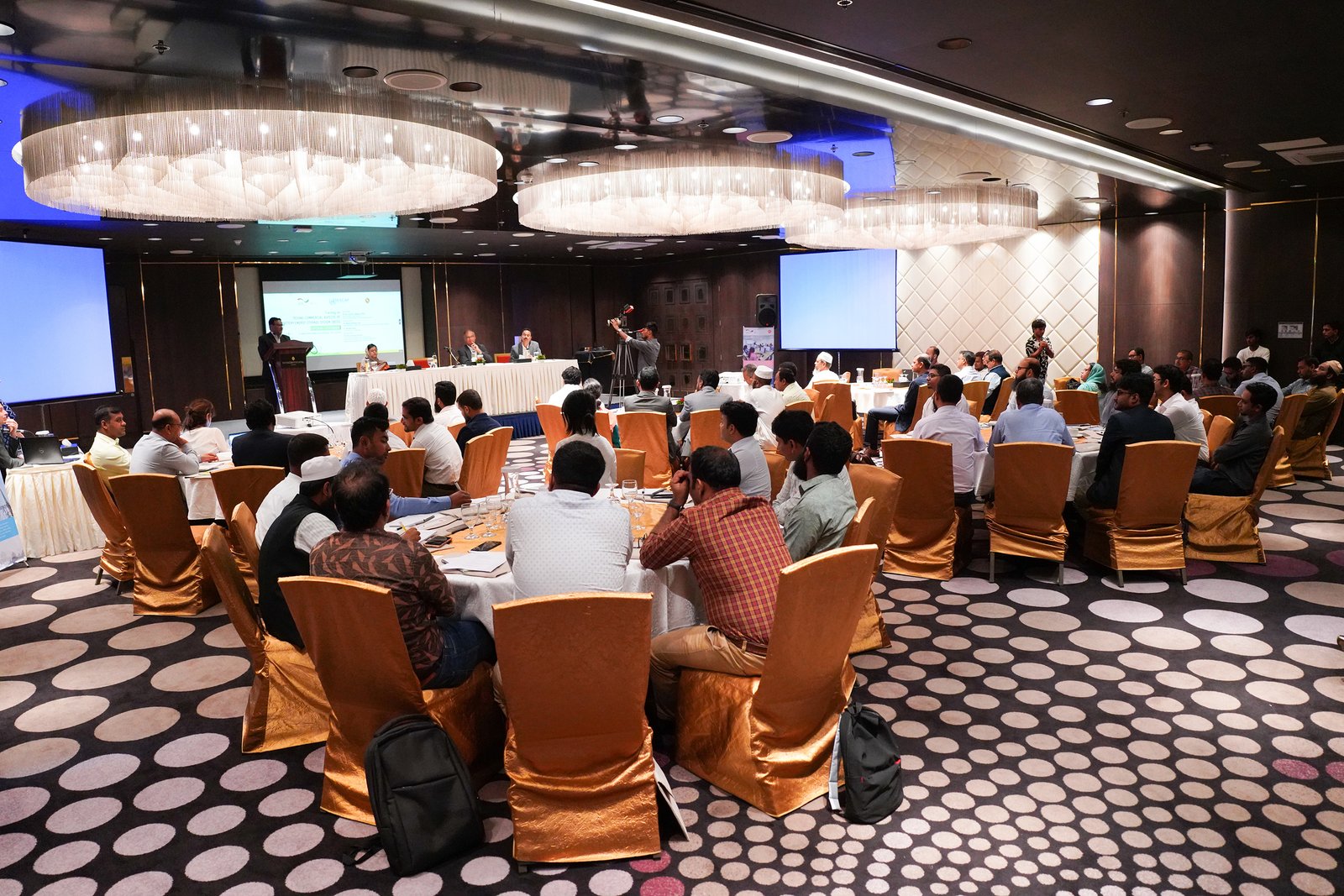
Dhaka, July 16, 2024 (PR) – Bangladesh can have its energy security strengthened through integration of renewable energy sources and enhancement of grid stability. Battery Energy Storage Systems (BESS) can play a major role to achieve that goal - pointed out experts at a landmark two-day training on the techno-commercial aspects of BESS on 14-15 July 2024.
The training brought together more than 50 participants from various electricity distribution utilities, aiming to enhance their technical and commercial knowledge of BESS technologies. This initiative is part of the ongoing efforts of Energy Efficiency and Grid Integration of Renewable Energy (EEGIRE) II – a German development cooperation project implemented by GIZ Bangladesh in collaboration with the Ministry of Power, Energy and Mineral Resources (MPEMR).

As Bangladesh doubles down on its efforts to increase renewable energy resources in its energy mix, primarily solar and wind energy, strengthening the grid to host these variable energy sources has emerged as a crucial issue. Power generated from these intermittent renewable sources fluctuates as a result of variable solar irradiance or wind flow. Incorporating these fluctuating renewable energy sources requires a stable and resilient grid network. Battery Energy Storage Systems (BESS) can play a pivotal role in stabilizing the grid with their rapid response properties, maintaining supply and demand balance, and reducing the risk of blackouts. BESS can store excess energy during off-peak hours and release it during peak demand, optimizing the use of generated electricity which ensures a stable and continuous supply of electricity even when the sun is not shining, or wind isn’t blowing. Hence, as the nation moves towards a green transition, enhancing knowledge of the key technical persons of the distribution grid utility on BESS is crucial.
The inaugural session on 14 July commenced with remarks from Ms Munira Sultana ndc, Chairman (Grade-1) of Sustainable and Renewable Energy Development Authority (SREDA); Dr Andreas Kuck, Country Director of GIZ Bangladesh, and Ms Stoyanka Stich, Coordinator, Energy Cluster, GIZ Bangladesh. Mr. Md. Habibur Rahman BPAA, Senior Secretary of the Power Division, Ministry of Power, Energy and Mineral Resources (MPEMR), delivered the inaugural speech. He emphasized on the importance of integrating BESS technologies to enhance the reliability and stability of the country's electricity distribution network, as higher percentages of variable renewable energy is continually being added to the nation’s energy mix.
The technical sessions were led by international experts, such as Dr Eckehard Tröster, CEO of Energynautics GmbH, and Mr Anis Zaman, Economic Affairs Officer at UN ESCAP. Topics covered included energy markets and regulation, BESS technologies and performance, investment aspects, the impacts of BESS on the levelized cost of electricity (LCOE), and tools and tariffs for technology diffusion.
Participants engaged in lively Q&A sessions and open discussions, allowing for a thorough exploration of global examples and the potential applications of BESS in Bangladesh. Hands-on group activities and case studies provided practical insights into tariff design and investment strategies for BESS projects.
The training concluded with reflections from Mr Siddique Zobair, Senior Energy Expert, and closing remarks from Chief Guest Md. Rezanur Rahman, Additional Secretary, Power Division and Special Guest Mr A.K.M. Gause Mohiuddin Ahmed, Managing Director of the Power Grid Company of Bangladesh Limited. Session Chair Mr Nirod Chandra Mondal, Joint Secretary, Renewable Energy, Power Division thanked GIZ and UNESCAP expressed his appreciation organizing this timely training.
The training successfully equipped participants with the necessary knowledge and skills to implement BESS technologies, marking a significant step towards a more sustainable and resilient energy system in Bangladesh. Feedback from attendees highlighted the practical value of the sessions and the importance of continued collaboration between GIZ, MPEMR, and other stakeholders.



